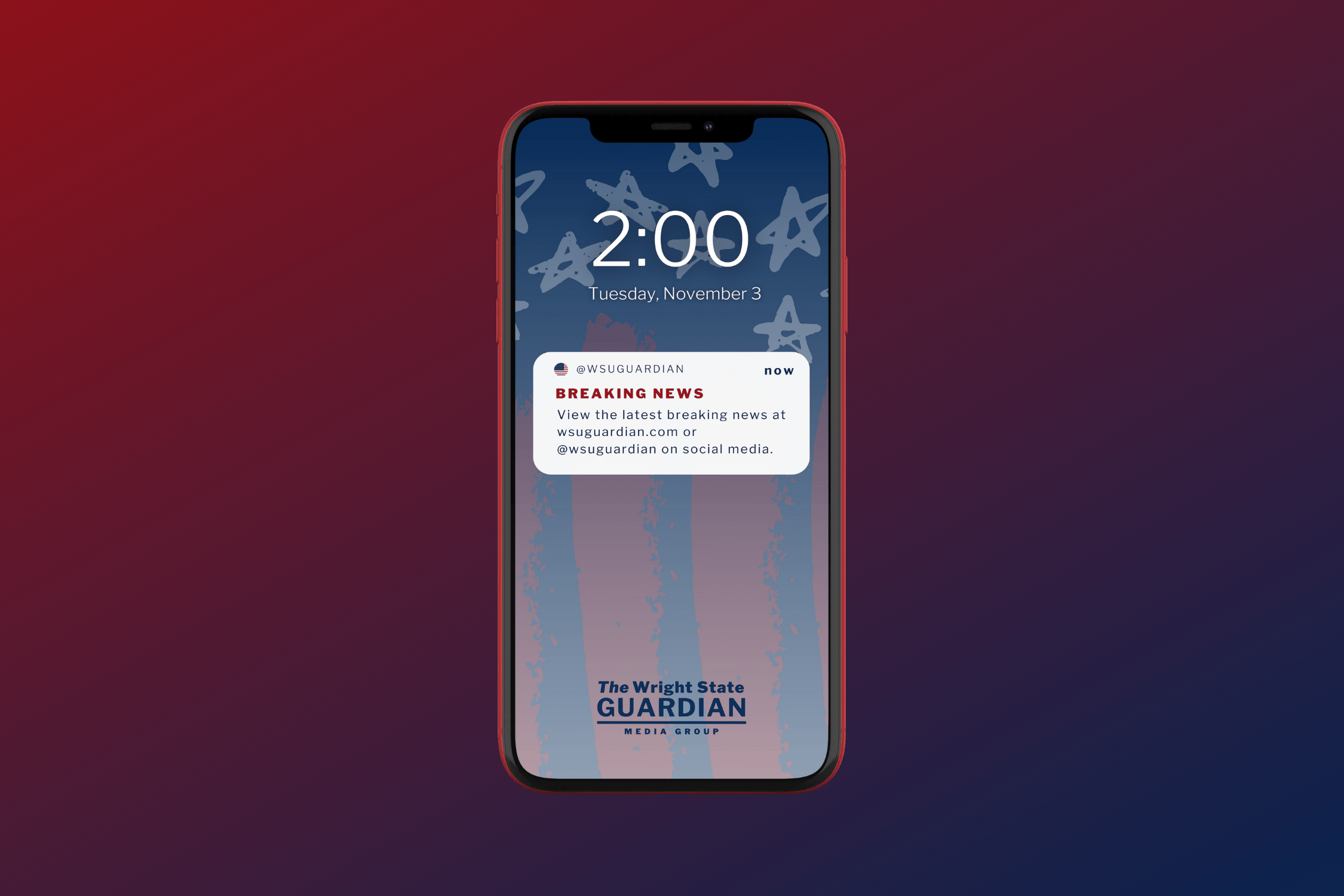
Politics and Social Media | Graphic by Dylan Collison | The Wright State Guardian
Social media has come under fire since the Jan. 6 capital riots for its negative impact on politics, yet Wright State University (WSU) professors and students explain how this issue is much more complex with ramifications and benefits far-reaching.
Negative
During the 2016 and 2020 election’s social media played a critical role in displaying politicians’ platforms and motivating citizens to vote.
In 2020 social media took a turn for the worst as far-right extremist groups like the Proud Boys and QAnon found their home and audience on platforms like Twitter and Parler.
These groups were able to reach a larger audience when the public started spending more time on social media platforms. The global coronavirus pandemic forced people to move their work, school and social lives online.
Freshman Rylee Thompson reported that she now spends three to four hours a day on social media while, before the pandemic, she reportedly only spent two to three hours on social media platforms.
“The lack of outside stimulus because of the pandemic, has pushed people further to their respective ends of the political spectrum,” said Chad Dudash a third-year double major in media studies and psychology.
Apps like Twitter and Facebook ask about a user’s interests when they create an account, this allows their algorithms to find posts and communities they think the user will be interested in.
“With people like QAnon with far-right extremism, they end up in these places where they’re on these Facebook groups or parlor or these message boards and they find like-minded people and it kind of validates what they believe in,” said Austin Lucous a senior political science major and a student researcher for WSU’s School of Public and International affairs.
Rules and regulation
Over the past year, there has been a public push to get social media companies to crack down on false information and extremist groups.
Dr. Edward Fitzgerald, a political science professor at WSU, explains the legal questions behind regulation.
“Are these places of public space where it’s first Amendment and you can’t really intrude upon them or are they private spaces where people can say ‘we don’t want you on here because we don’t want to associate with your particular ideas’? That’s going to be interesting to try to regulate this in terms of stepping all over the first amendment again,” said Dr. Fitzgerald.
Positive
Like most modern-day inventions and concepts, social media has its negatives and its positives.
During the pandemic and quarantine, social media was used to not only spread lies but also kept people connected to their friends, families and schools.
It also helped mobilize the Black Lives Matter movement in the summer of 2020 and is cited as one of the contributing factors to the increased voter turnout among the younger population in the 2020 election.
“Social media can be used any good and in a bad way and I will always stand by that,” said Thompson.
